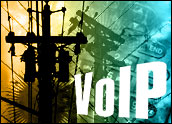
A lawsuit filed by the Texas attorney general against Vonage — which claims the company misled VoIP (voice over Internet protocol) customers about 911 emergency service — brings up one of the problems with emergingtelecommunications technology.
Customers must register for 911 service as a separate step during their registration process. According to Texas Attorney General Greg Abbott, that means it is misleading to claim VoIP service replicates traditional phone service.
VoIP is spreading as an inexpensive and convenient alternative to land-line phone service, but education about its limitations is lacking.
Pinpointing Location
To illustrate the reason for his lawsuit, Abbot told of a Houston couple who tried to call 911 only to find they had not signed up for the service. Vonage’s registration Web pages tell customers how the 911services function and state that customers must register their numbers tomake 911 services work.
Commenting on the case, Jay Lassman, research director at Gartner, told TechNewsWorld, “The education process is overwhelming when you think about who doesn’t knowabout this.”
The issue echoes the problem of 911 calls from cell phones — the mobility that users love also creates the challenge of trying to figure out where that emergency call is coming from. By the end of this year, Federal Communications Commission regulations for enhanced 911 (E911)will require mobile service providers to be able to pinpoint the location of cellphone callers within 50 to 300 meters (about 164-984 feet) in most cases andreport that to emergency response personnel. Manycell phone providers use GPS (global positioning satellite) systems to doso, if the phone is GPS-enabled.
So far, there are no regulations coveringVoIP 911 calls.
No Way To Know
With VoIP phones, the issue becomes more than one of simply knowing where a phone is at a given moment. Cell phones can be tracked to a rough area by figuring out which antenna transmitted the call. That is not an option with aVoIP phone, which relies on an IP address. Even if the phone is attached to a homeowner’s computer, emergency dispatchers have no way of knowing where the call is coming from.
“It’s more of a management and procedural issue,” Lassman said. “It will require human intervention.With an IP phone, you don’t really have a physical address, just an IPaddress. An IP phone can make a call from anywhere.”
In an emergency, the caller may not have time to say where he or she is, or maynot know. Even if the caller has registered the phone for 911 service, ifthe call is not made from the registration address, there’s no way offinding out where the person is.
Business VoIP systems make it seem as though a worker is calling from theoffice, when in fact he or she may be anywhere. This can lead to personal safety andcorporate liability issues.
An employee on a business trip who faces an emergency would be better off dialing 911 on a land line rather than on his or her VoIP-equipped laptop, because then emergency crews will know where to find the person.
“Procedures are very important,” Lassman said. “If you have an IP phone in a hotel room, you might bebetter off not using it.”






















































The failure of carriers to educate subscribers about 911 service and VoIP is making news because of the Texas lawsuit, but what about educating wireless users and the E911 location capability mentioned? Wireless carriers and public safety organizations do very little to inform thier users about the fact that in too many areas E911 has not been made available, either by the carrier or by the public safety entity. Even when enabled, the mandated location of hundreds of feet, or even meters, is far less specific than the wireline termination point.
So, the same lesson applies: If you want to be sure, dial 911 from the nearest land line. Otherwise, be prepared to tell the emergency operator precisely where you are!